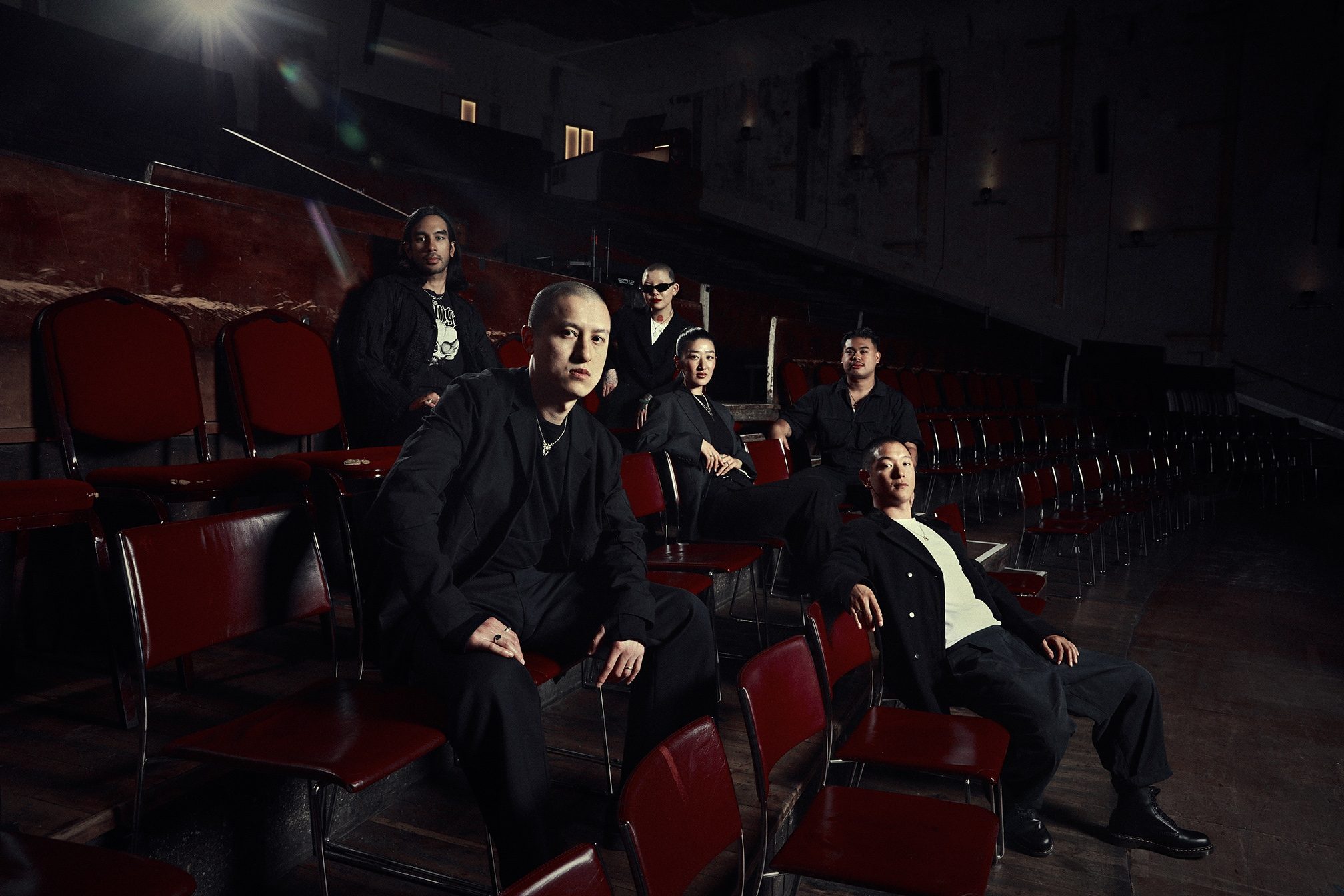 Features
Features
“A unique and special moment”: Margins United is Europe’s first festival celebrating alternative ESEA culture
Ahead of the debut festival from Eastern Margins, Meena Sears speaks to organisers and artists about the pioneering event, championing East and South-East Asian culture, and changing the music industry
A new festival — the first of its kind in Europe — takes place in London this weekend. On Saturday, September 28, Margins United lands at EartH Hackney, celebrating the diversity and vibrancy of East and South East Asian (ESEA) music, food and art.
Presented by Eastern Margins, a record label and collective championing alternative ESEA culture, the 12-hour day-and-night event will host a wide variety of creatives from the diaspora in the UK and beyond. From Malaysian manyao to Filipino budots, the festival’s musical programme will represent the myriad of underground sounds and scenes that make up the label’s family.
Eastern Margins was founded in 2018 by David Zhou and Anthony Ko with the aim of giving ESEA creatives better representation in the UK and reframing the way these cultures are viewed in the mainstream by focussing specifically on artists from the ‘margins’.
A grassroots organisation, the collective started out playing unlicensed raves in derelict Shoreditch basements. Since then, it has grown stratospherically, launching a radio show on NTS, releasing an album compilation, selling-out shows all over the UK, curating a stage at Glastonbury and, most importantly, building a vital and treasured community for its members.
Read this next: "Only about the music": Southeast Asia's underground is in a golden era
Speaking of this community, and the role of Margins United in bringing that community together, German-Chinese pop-punk singer LIA LIA told Mixmag: “Having spaces like Margins United is a way for us to connect, share, and build something together, allowing for a more authentic expression of who we are. It’s a place where we can see ourselves reflected, and that’s crucial for creativity to thrive. It’s a chance to break away from conventional expectations and embrace our individuality.”
With help from UK Arts Council funding, Margins United festival coincides with September’s ESEA Heritage Month, a dedicated time for celebrating the culture, history, heritage and contributions of ESEA communities in the UK. Eastern Margins hopes to widen the definition of what this can mean by presenting an event that champions alternative Asian culture and its associated scenes, which are often less visible in wider society.
During the day, festivalgoers can enjoy numerous activities including a design workshop with Baesianz (a multidisciplinary collective and platform for artists of Asian heritage), a talk by ESEA Music (a non-profit group led by UK-based ESEA music industry professionals), a workshop with Eat Drink Hui (exploring food as medicine) and a custom-made art installation by Malaysian-Chinese multimedia artist Lawrence Lek.
Read this next: How the pandemic connected China's club scene
When the sun sets is when the party starts, with David Zhou and his team (including DJ and writer Jex Wang) curating an exciting line-up of artists with ESEA heritage that push the boundaries of electronic music, rap, pop and more.
South-London rapper Jianbo will bring his signature blend of UK garage, jazz, grime, and dubstep, while LVRA, the alt-pop singer and producer hailing from Edinburgh, is set to debut a new collaborative project with Soda Plains.
Having performed for Eastern Margins during the collective’s early days, Singaporean indie-electro singer yeule will return with a one-off DJ set, while Filipino favourite and Budots pioneer DJ Love will play outside of his home country for the first time, bringing the underground genre to the UK.
Other DJs and artists included on the line-up include Seoul-born, Toronto-bred DJ and club promoter Oh Annie Oh, Onra, LIA LIA, Soo Joo, Shelhiel, No Rome, MEYY, FORTRESS, BABii, Hilts, Lucy Tun, LYAM, Namani, Nix Northwest and SHAYK.
We sat down with some of these artists to find out more about what the festival means to them, what they think ‘alternative’ culture is, and what changes they think need to be made in the industry to ensure better representation for ESEA musicians. We also spoke with Zhou and Wang, delving into the vision behind Margins United, how their collective has evolved over the years, and what they hope to achieve through it.
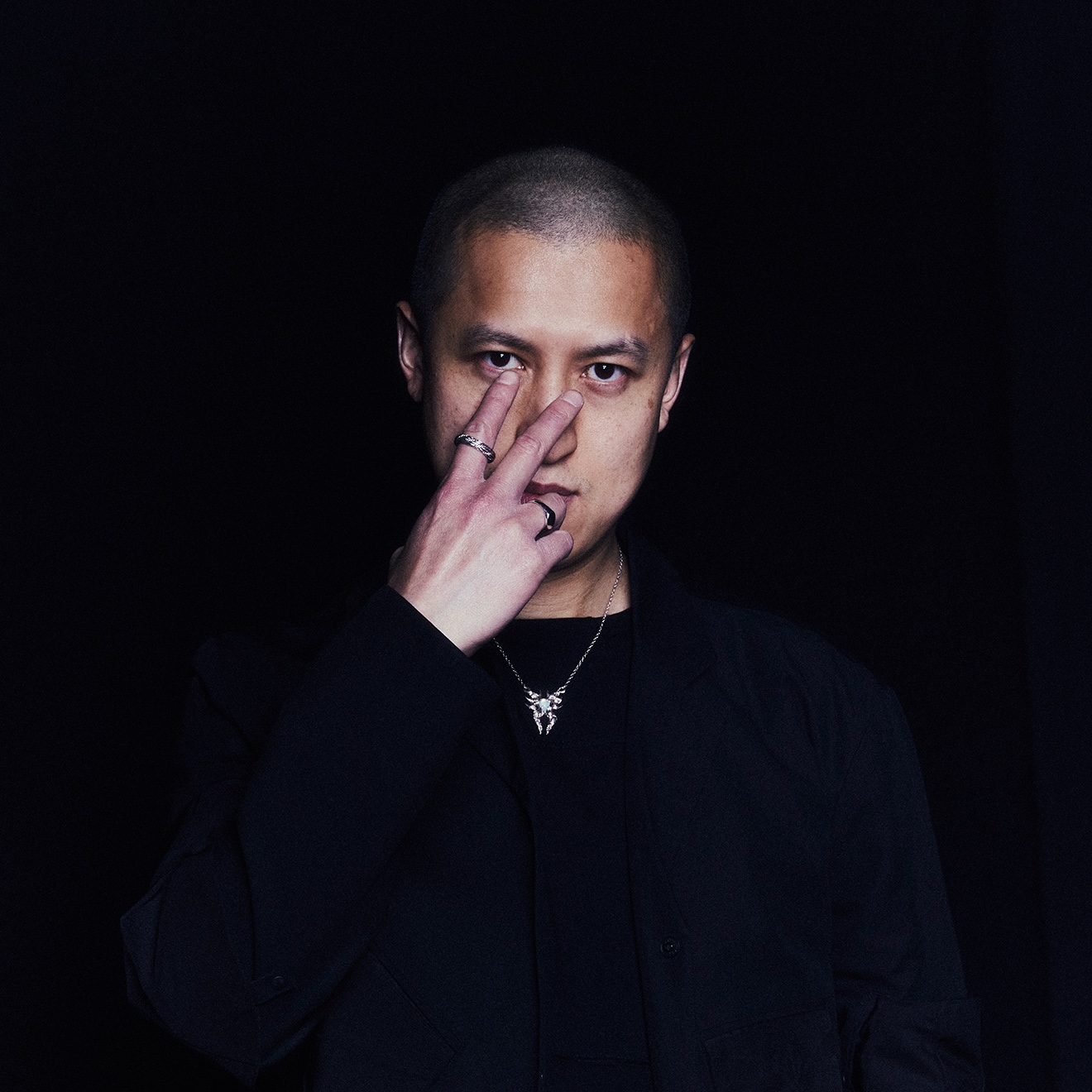
David Zhou / Lumi
What do club culture and dance music mean to you?
Belonging. When I was a kid growing up in suburban dead-ends trying to make sense of a society that had no space for me, club culture was the first place where I felt connection. In the depth of a good dance, everyone is no-one.
What does the term ‘alternative’ culture mean to you?
Clear eyes, full hearts, can't lose.
Why is it important and necessary to have a dedicated festival celebrating and promoting ESEA culture?
For the same reason that club culture and dance music are important: belonging.
Read this next: DJ Orawan is leading Bangkok's drum 'n' bass awakening
There is such a wide diversity of music on offer at the festival, from drum ‘n’ bass to R&B to dream pop, what was the intention behind curating such a genre-bending line-up?
All the music shares a common thread: redline - emotional resonance via distortion and entropy.
What needs to be done in the industry to ensure that there is better representation for East & South-East Asian musicians?
Change won't come from the industry, it'll come from the grassroots. And the roots will rip through the concrete barriers of inertia.
What are your hopes and dreams for the future of Margins United?
It's in the name. We want to bring everyone together. All the misfits, outcasts and kids from the Margins. We're stronger united.
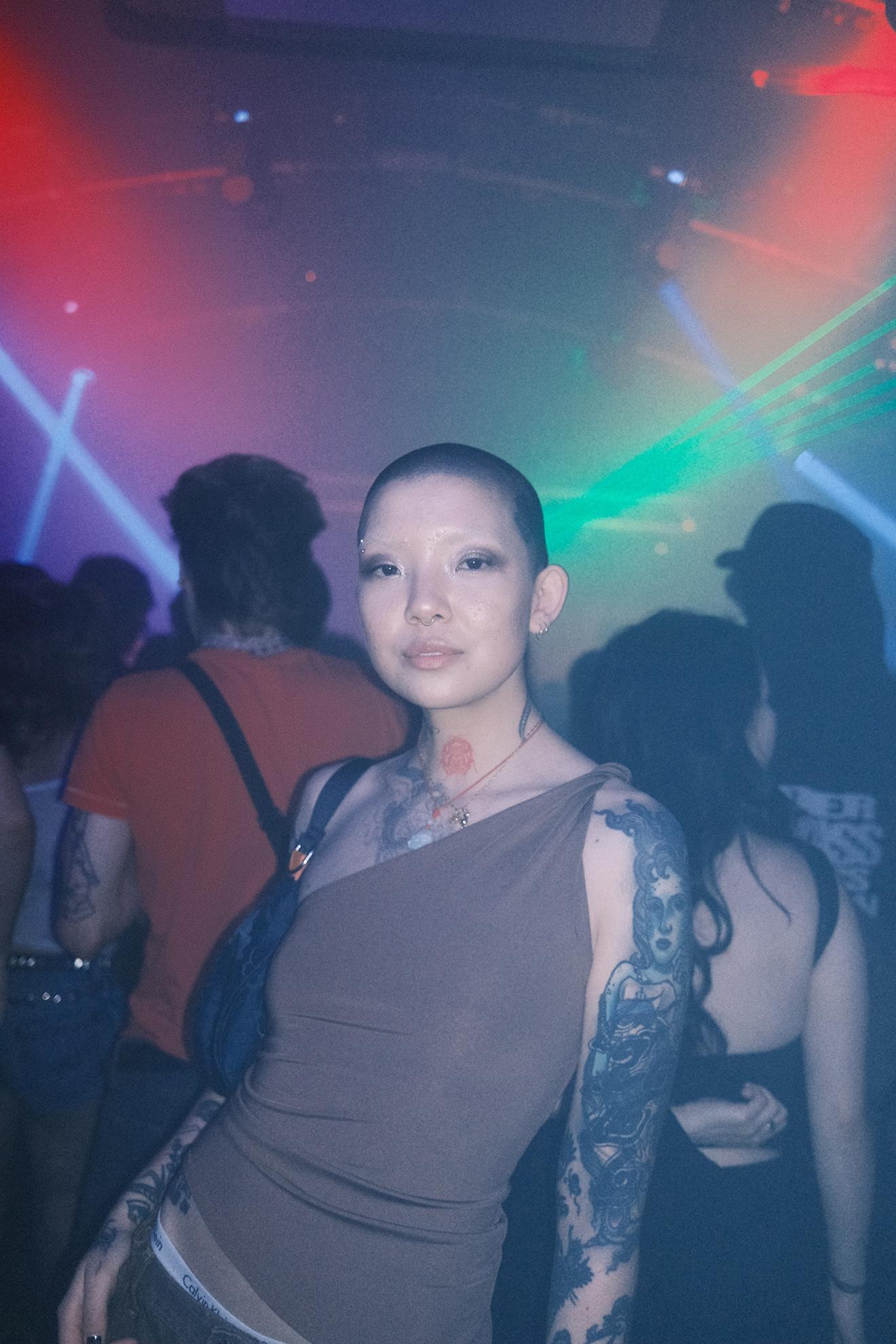
Jex Wang
What do club culture and dance music mean to you?
I never really fully got into anything growing up. I definitely tried a lot of things though – studied zoology and cybersecurity, played classical piano, tried every sport under the sun – and nothing was interesting enough for me to pursue for more than a couple of years. Then I started going out to clubs and got into dance music and it just clicked for me. It’s the only thing that’s managed to pique my interest for more than five years and now it's been over a decade and I’m still just as invested as when I first got into it.
I love going to the club because it's one of the only spaces where you can choose to be social, make friends with regulars that you see often and create a community, or just stand in a spot by yourself and enjoy the moment. I like the escapism aspect of it as well – at the rave, time almost doesn’t exist, you just tell yourself you need to leave eventually, but the blurry haze for a few hours is a nice escape from my day to day schedule.
Dance music is so diverse and constantly evolving that there is always something to uncover or new to discover. No matter how arduous the daily grind gets for me, clubs and dance music will always be a welcome distraction. I'm really glad I found club culture and dance music because I really did feel a bit lost for the majority of my life until then.
How do you, as Eastern Margins, hope to change the way that ESEA culture is viewed and recognised within the UK?
I would just like ESEA culture to be recognised more to be honest. There’s definitely some recognition already but given how deep, vast and diverse ESEA culture is, the current representation isn't enough. Even as Eastern Margins, we are trying our best to tell as many stories that we can but with so many cultures to get through and platform, it’s a big task. We aren’t the first to platform ESEA culture and I hope we won’t be the last. Hopefully, we have inspired others to also do the same, not just in the UK but globally.
Eastern Margins was founded seven years ago, how has your collective evolved since then?
We have definitely evolved a lot over the last seven years, from one-off events to being a label, a radio show, organising international tours and now a festival, it has been a lot of growth. Even looking at my own skillset over the years, I started off helping out with creating a safer space for the events, giving tips on expanding our social media following as those were my main skills and now I’ve had to learn graphic design for content creation and studying the music industry so I can figure out how to manage a functioning label.
So yeah, although I was kind of annoyed the day I got told I had to download Slack (I hate having so many messaging apps on my phone), our evolution from one-off events to a being a fully functioning platform where we are working really hard to create something with longevity, is worth all the hours put in.
Read this next: The New East: Kazakhstan's underground is on the map
What does the term ‘alternative’ culture mean to you?
I feel like a lot of people think Asian culture is music that 88rising puts out or movies like Crazy Rich Asians, which is definitely valid and much-needed representation among the mainstream arts, but what about the underground? I started out in music in the underground because I didn’t really vibe with what was out in the more mainstream branches of music, so I guess that’s what alternative culture means to me. Anything that doesn’t have a place or fit in the mainstream, the alternative is our home and community for that culture.
Why is it important and necessary to have a dedicated festival celebrating and promoting ESEA culture?
To answer this question bluntly, the fact that there hasn’t been a dedicated festival already celebrating and promoting ESEA culture is exactly why it’s important for us to do this. I touched on this earlier, but there’s so much to showcase when it comes to ESEA culture, a festival like Margins United is just the beginning, we need to do more.
There is such a wide diversity of music on offer at the festival, from drum ‘n’ bass to R&B to dream pop, what was the intention behind curating such a genre-bending line-up?
The intention behind such a diverse line-up is to showcase all the different branches of music ESEA artists are involved in. We are all doing so much and when you mention Asian music to people, not many people know how diverse it can be so that’s our main motivation behind such a varied line-up.
What needs to be done in the industry to ensure that there is better representation for East & South-East Asian musicians?
More support and funding. We couldn’t have done this festival without the funding from the UK Arts Council and given the increase in cost of living and the socio-economic crisis globally, it’s harder to be an artist these days so more funding is definitely needed. And with anything anyone ever does, support is always needed. Support from the ESEA community and outside the community is vital to keeping musicians going, whether that’s just streaming the music to buying tickets to shows, any support, no matter how big or small, is always needed.
What are your hopes and dreams for the future of Margins United?
I hope that there will be more events like Margins United to come. And given how busy I am trying to juggle my day job and working on Eastern Margins, I now dream of more advanced methods to organise budgets and release campaigns in spreadsheets to fully utilise all the limited time I have to work on everything so we can do more. More events, more releases and supporting more ESEA artists with their craft.
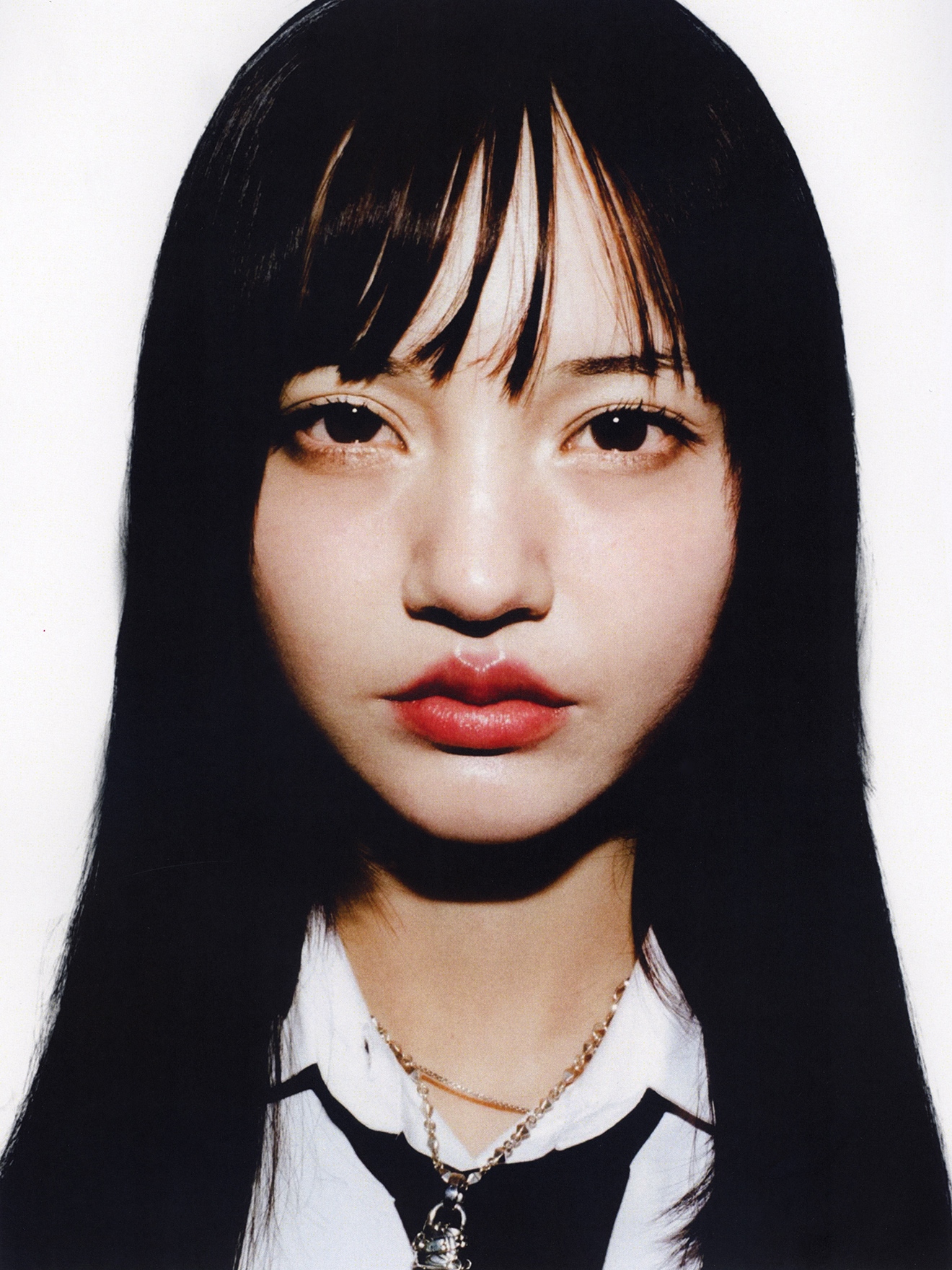
LIA LIA
What are some of your key musical memories growing up, and how have they impacted you as an artist?
My life has been filled with music since I can remember. I started in a church choir at four, did ballet, and played violin, so I grew up with classical music – full on Chinese style. My mom loved singing and listened to Kate Bush, Björk, and Sade. While my dad and I would perform and sing Szechuan Opera together. He also taught me popular Chinese songs, like ‘Wo Yueni Weini’ by Faye Wong, so he could show me off to the aunties and uncles at karaoke.
There is a real diversity of music on offer at the Margins United festival, from drum ‘n’ bass to R&B to dream pop, how are you feeling about being involved in the event?
I’m excited to be part of the Margins United festival because it’s a space where different genres and cultures come together. It feels special to be part of an event that showcases so much diversity, both musically and culturally. For someone like me, who doesn't fit squarely into the techno or club scene or a specific genre, this festival feels like a place where I can explore and experience new sounds. It’s beautiful to see such a range of music styles, and I look forward to being a part of it and seeing how different artists bring their unique influences to the event.
What does it mean for ESEA clubbers, musicians, and creatives to have a space where they can come together and share their passion?
For ESEA clubbers, musicians, and creatives, having a space to come together is empowering. Growing up with a cultural background where the arts are not always encouraged, especially music, it can be difficult to find the freedom to express yourself fully. I feel like, in many East Asian families, the focus is often on more traditional career paths, and there’s less support for pursuing creative fields.
Read this next: How WAIFU is revolutionising Tokyo's queer nightlife
What does the term ‘alternative’ culture mean to you?
The term ‘alternative’ culture, to me, means something that exists outside of the mainstream, but more importantly, it’s about being true to yourself. I believe in authenticity, and if what you’re doing feels real and honest to you, people will connect with it. Growing up, I didn’t always feel like I fit into the mainstream, especially as someone with a mixed background and different cultural expectations. For me, ‘alternative’ isn’t just about rejecting the norm for the sake of it; it’s about finding your own path and embracing what makes you unique. It’s about carving out spaces where you can express who you are, even if it doesn’t fit into a neatly defined box.
Are there changes you would like to see in the music industry to ensure that there is better representation for ESEA musicians?
I think one of the key changes I’d like to see in the music industry is simply more visibility and support for ESEA musicians. In many East Asian cultures, like in China, there’s often pressure to study business or medicine, and art or music is sometimes seen as less important. This mindset can prevent talented people from even considering music as a viable option. If we had more representation in the industry – more musicians showing that it’s possible to pursue music and succeed – then I think we’d start to see a shift. It’s not just about breaking into the mainstream but about building supportive communities where ESEA artists can collaborate, support each other, and find their voices. The more we see people like us creating and thriving in the industry, the more others will feel empowered to do the same.
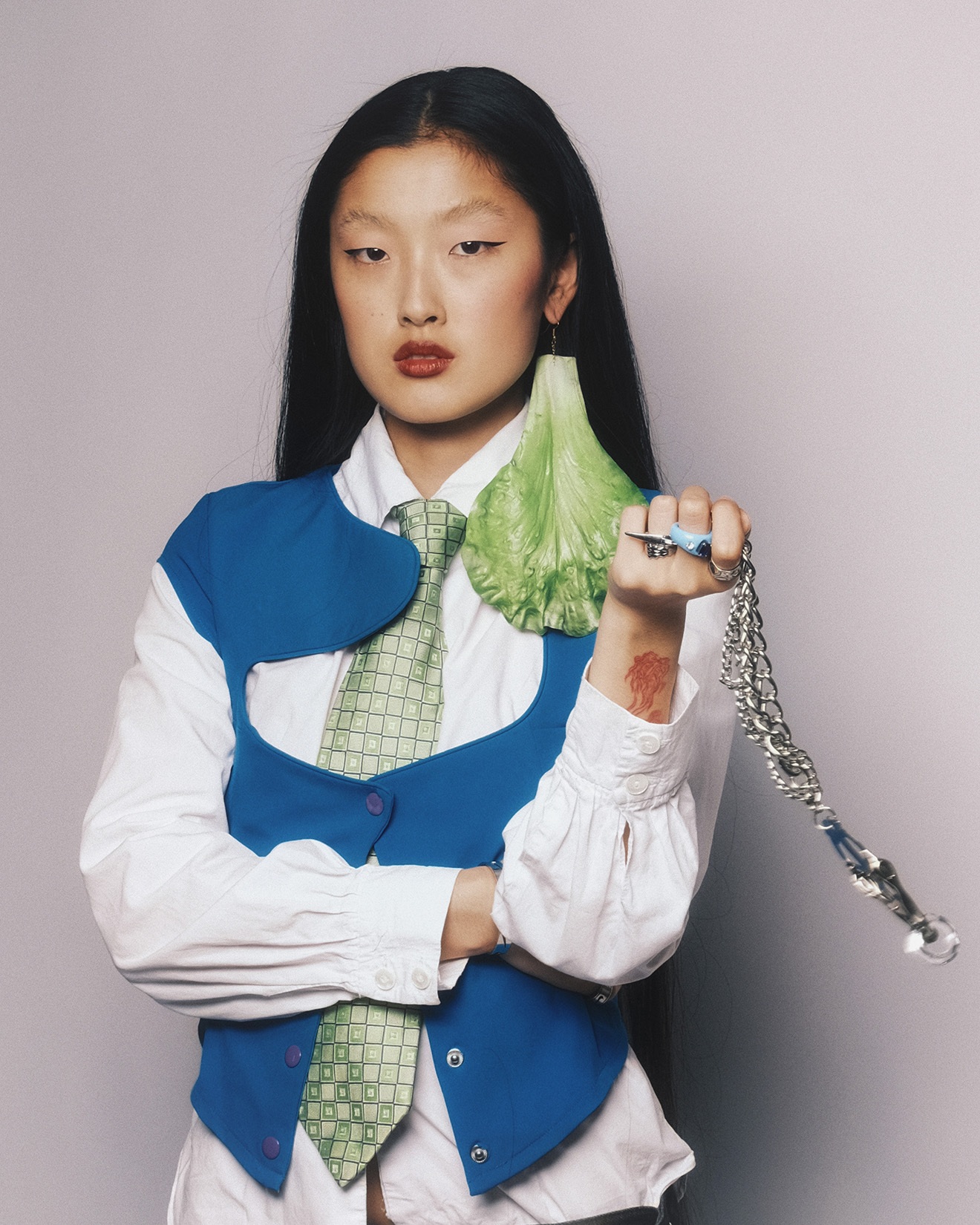
LVRA
What do club culture and dance music mean to you?
I find the club one of the most comfortable social spaces there is. Listening to dance music on the dancefloor is both a very personal and shared experience. That safety and freedom has been pivotal for me as an artist.
What are some of your key musical memories growing and how have they impacted you as an artist?
When I was like 10, I hosted a performance in my living room for my parents and made them buy tickets for my show. I put out chairs for them to sit on and stood on a makeshift stage – did my makeup and dressed up. I sang ‘Hot n Cold’ by Katy Perry and a bunch of other songs I can’t even remember. They whooped and woo’d me and I had the best time but I was always too shy to sing in front of strangers. Growing up, my parents actually encouraged me to perform I think because they thought it would be good for my confidence – they just didn’t want me to take it too seriously. It’s been a long journey, but now they are both super supportive of me and I feel blessed to have them as my biggest fans.
There is a real diversity of music on offer at the Margins United festival, from drum ‘n’ bass to R&B to dream pop, how are you feeling about being involved in the event?
I’m always gassed to play for Eastern Margins. We have the best community.
Read this next: 8 up-and-coming Japanese DJs that you need to know
What does it mean for ESEA clubbers, musicians and creatives to have a space where they can come together and share their passion?
It’s something we have never had before. It’s been totally pivotal to my career since I moved to London and met these guys. It really grounds my music in something bigger than myself, and it's a community I can proudly be part of.
What does the term ‘alternative’ culture mean to you?
Any type of art that doesn’t sit within the mainstream.
Are there changes you would like to see in the music industry to ensure that there is better representation for East & South-East Asian musicians?
More government funding across the board – not just for East and South East Asians but for anyone in a disadvantaged position in this industry. We cannot rely on private funding. Representation is a political issue – the benefits of it are social – and thus relying on profit-driven organisations and companies to fund this kind of art is a complete mismatch of incentives. Identity politics is being weaponised and monetised, and artists have no choice but to play along to earn a living.
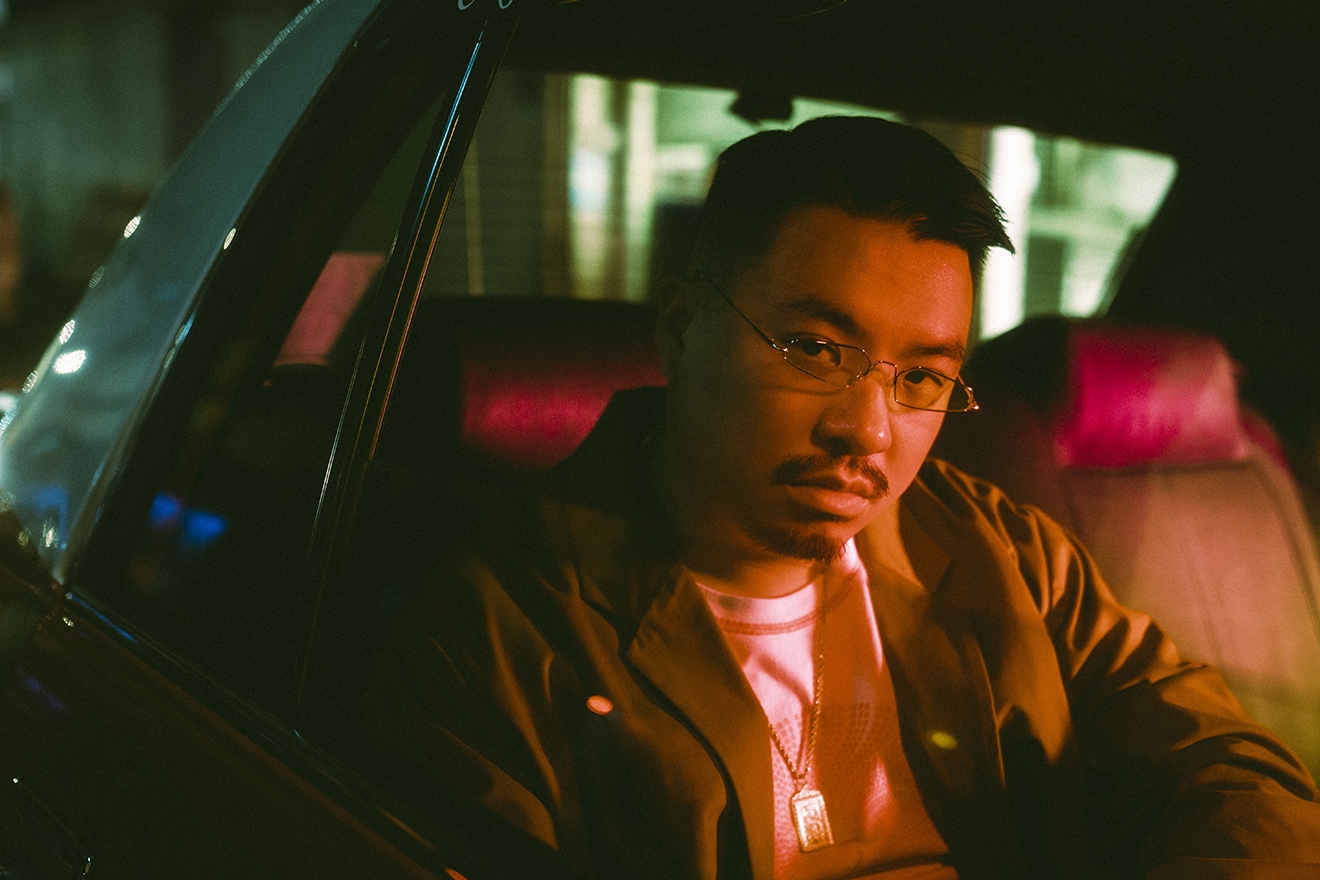
Jianbo
What do club culture and dance music mean to you?
Club culture is a really broad term and really encompasses a lot of my musical understanding – from grime to footwork to house – so I’d say it’s pretty much the foundation for everything I create.
What are some of your key musical memories growing and how have they impacted you as an artist?
Sitting in the backseat of my cousin’s Honda as a child, having them play me pirate radio rips and bootleg CDs definitely got me from early. I guess you could say those UK sounds never left me.
There is a real diversity of music on offer at the Margins United festival, from drum ‘n’ bass to R&B to dream pop, how are you feeling about being involved in the event?
It’s a real honour and a pleasure to be included in this line-up of Asian talent. I’m looking forward to showcasing my own brand of music, which I think will add another layer to the variety on offer.
Read this next: Snug encapsulates the extravagance and debauchery of Hanoi's queer clubbing community
What does it mean for ESEA clubbers, musicians and creatives to have a space where they can come together and share their passion?
It’s pretty unheard of in London to be honest, so it’s definitely a unique and special moment for the city.
What does the term ‘alternative’ culture mean to you?
Everything that is truly cultural.
Are there changes you would like to see in the music industry to ensure that there is better representation for East & South-East Asian musicians?
More money, more movements, more minutes.
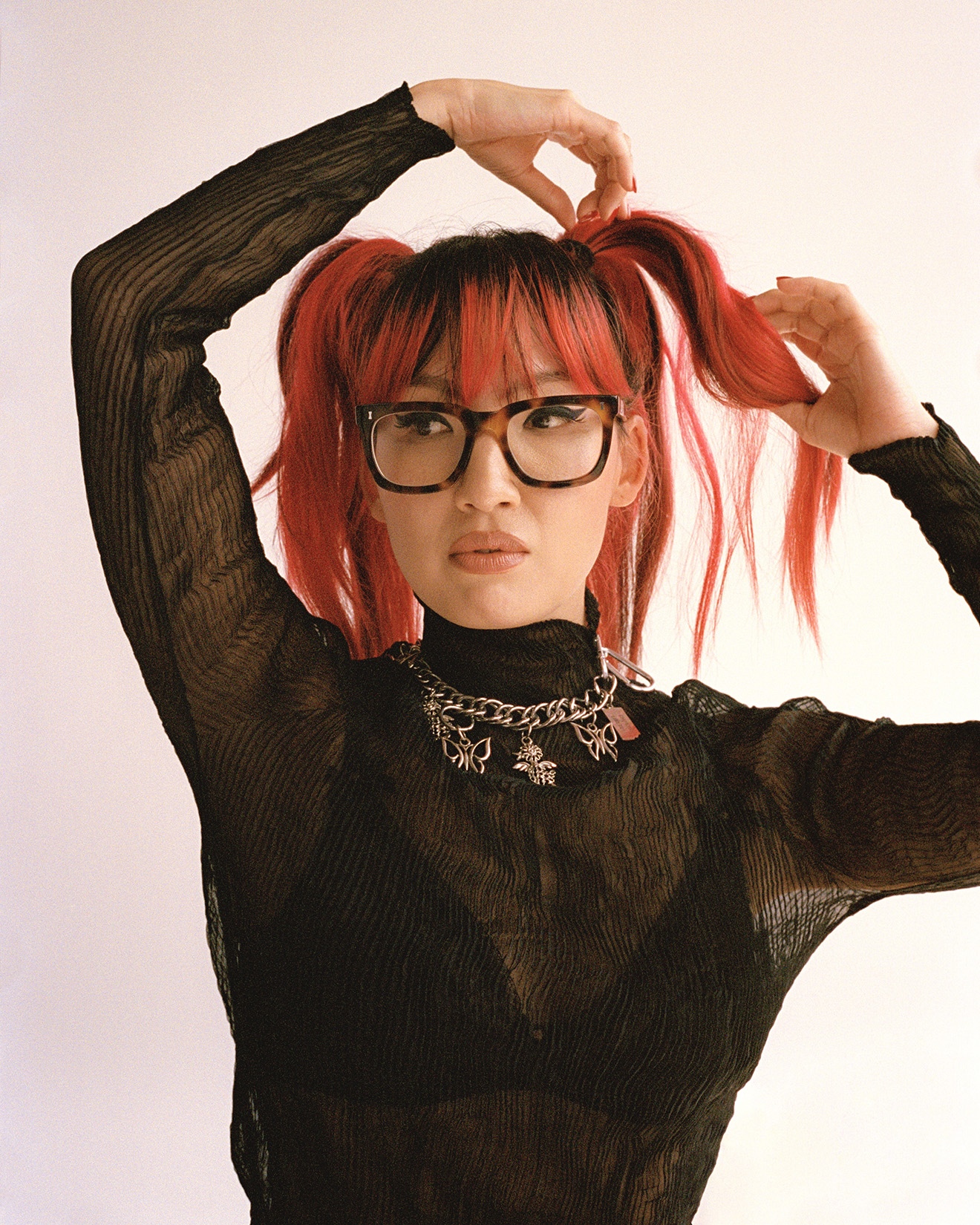
Oh Annie Oh
What do club culture and dance music mean to you?
Sneaking into clubs when I was a teenager was my complete escape growing up! Being part of the diaspora in Toronto I didn’t have a connection to my culture at that young age, so, music was the way for me to find community and it was the first time I experienced something like that.
What are some of your key musical memories growing and how have they impacted you as an artist?
My love for music turned into an obsession in high school. I used to skip school and wait outside venues to meet the bands I loved and went to hundreds of shows. The most influential gig I went to was Radiohead in 2006. I had never seen a band before incorporating electronic and dance elements into a live show like that and it blew my teenage mind.
There is a real diversity of music on offer at the Margins United festival, from drum ‘n’ bass to R&B to dream pop, how are you feeling about being involved in the event?
Eastern Margins feels like home to me. David [Zhou, co-founder of Eastern Margins] and I spoke when we first worked together in 2018 and we realised that I DJed at their second ever event. It was at a venue that doesn’t exist anymore just a few doors down from EartH in Hackney where Margins United is. It makes me so proud to see how much they’ve grown and to see their goals come into fruition.
Read this next: Korea's DMZ Peace Train Festival: Bringing happiness to the world's most heavily guarded frontier
What does it mean for ESEA clubbers, musicians and creatives to have a space where they can come together and share their passion?
I can’t emphasise enough how important Eastern Margins and events like this are to the community. I only WISH I had access to collectives and nights like this growing up and experiencing nightlife for the first time. I’m so grateful that I’m able to be a part of it now and to be one of the artists helping push the culture, especially in the UK where this is quite literally groundbreaking.
What does the term ‘alternative’ culture mean to you?
Alternative culture is just normal life, I guess, but it’s more exciting and interesting because it involves people breaking the boundaries and experimenting. I love to see that.
Are there changes you would like to see in the music industry to ensure better representation for ESEA musicians?
To be completely honest there needs to be more. Yes, we have these creative and music industry collectives like Eastern Margins and ESEA Music that are building rapidly now, but when I’m looking at the line-ups of some of the biggest festivals in the world and counting the number of ESEA artists on one hand, it shows there is still a lot of work to be done. Representation and visibility is vital to encourage and inspire the younger generation to pursue the arts and it’s our duty to provide that.
Tickets for Margins United are on sale now, get yours here
Meena Sears is Mixmag's Digital Intern, follow her on Instagram


